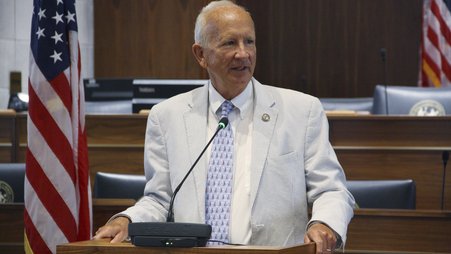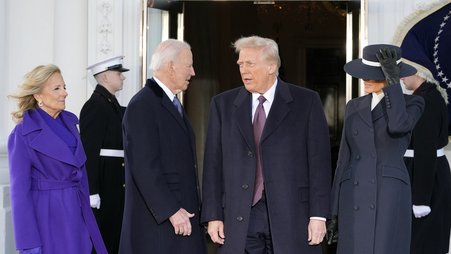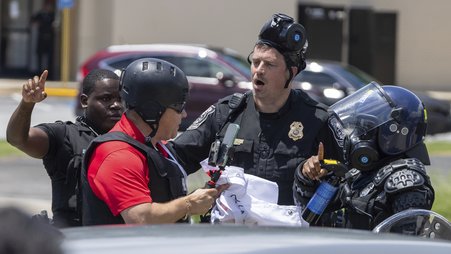The Biden administration last week declassified information alleging that Russian state media outlet RT has, in the words of Secretary of State Antony Blinken, “engaged in covert information and influence operations and military procurement” on behalf of the Kremlin. The newly public information, released to bolster new sanctions against the news organization, did not include declassification of the underlying documents — only their findings.
This is the latest example of the Biden administration strategically declassifying U.S. secrets. It is a good initiative — and one that would be strengthened by declassifying the records themselves.
Failing to do so is a missed opportunity in the RT case for two reasons.
The first is that declassifying the records could help shore up support for a move that raises serious First Amendment concerns or questions of cherry-picked evidence. Releasing the underlying documents could also empower press advocates and other potential skeptics to mount an informed opposition to the administration’s efforts. That might not further the administration’s strategic goals but it is (or it should be) the American way.
Charges of military procurement and “information and influence operations” sound bad, but such allegations — and the documents they are based on — must be analyzed and challenged. Press freedom advocates have often been worried about these types of cases because it puts state-funded journalists in countries like Russia at risk of serious retaliation. Vetting the evidence is important for this reason, as is remembering that the documents in and of themselves should not be taken as the unbiased truth. They are pieces of evidence recording oftentimes subjective interpretations of events.
Americans should know exactly what kind of “information and influence” operations by state-sponsored media the government deems worthy of punishment. All state media outlets, including our own, seek to advance the interests of the government in some way, and Americans are constitutionally entitled to consume foreign propaganda if they so choose. If RT's alleged conduct is not starkly different from what other government media outlets do, then the investigation puts outlets worldwide at risk of retaliation.
Cherry picking evidence is also not an abstract concern. In 2003, for example, the Bush administration used bad intelligence from a debunked informant, codenamed Curveball, to justify its long-standing plan to invade Iraq. And the Biden administration has previously shown willingness to overlook free speech concerns when it contends that national security is imperiled without sharing any underlying evidence, including by supporting banning TikTok and prosecuting WikiLeaks founder Julian Assange.
The second reason is that declassifying documentary evidence is important during a presidential election season where one candidate has repeatedly made baseless and threatening claims about the press. Showing the public the details of Russian state media’s abuses — assuming the documents do so — would undercut politicians’ false equivalencies to conduct by American news outlets they don’t like.
The Biden administration’s secret-sharing program
The RT declassification is not the first time the administration has selectively downgraded classified information.
The Biden administration has repeatedly declassified intelligence on Russian activities in Ukraine. The effort was deemed so successful at countering Russian disinformation that it prompted the White House to build a “broad program to share secrets when it serves strategic goals,” according to a deep dive by Time magazine into the program. And while this approach to declassification is not new, the Biden administration’s method is unique both because it is a formal process that is centralized in the White House (as opposed to the intelligence community), and is used regularly, sometimes multiple times a day.
This effort has released information that helped de-escalate Serbian military buildup along the Kosovo border; undercut Chinese attempts to retaliate against the U.S. for then-House Speaker Nancy Pelosi’s visit to Taiwan; and persuaded Iran to stop supporting Houthi attacks on merchant ships in the Red Sea.
The National Security Council leads the program, but individual agencies like the CIA make the ultimate decision about whether information is declassified. This presents a challenge because “Intelligence officers who had classified secrets to begin with were loath to declassify them,” the Time report found. To address agency concerns, the Biden administration does not ask for full or finished reports, opting instead to ask for individual facts or data points. It then usually combines the declassified intelligence with open-source information for release to the press.
Show your work
White House-led declassification efforts should continue, but the administration itself has concluded that the program will only succeed if it has “enough credibility to overcome the U.S. history of bad intelligence and propaganda abuse.”
The solution is straightforward. Declassify the documents themselves. This would rebuff arguments that the intelligence being presented is cherry picked or weak.
The next time — and I do hope there is a next time — the administration strategically declassifies information, it should show its work and let the public see the documents. This won’t solve the crisis of overclassification, and declassifying strategically important documents should not take precedence over releasing records that reveal uncomfortable or politically inconvenient truths, but it is a step in the right direction.





